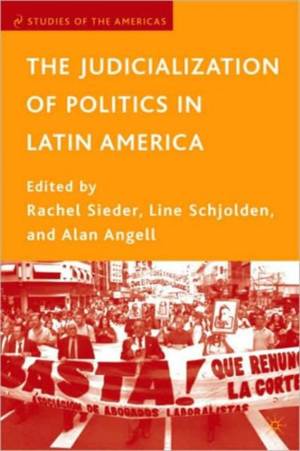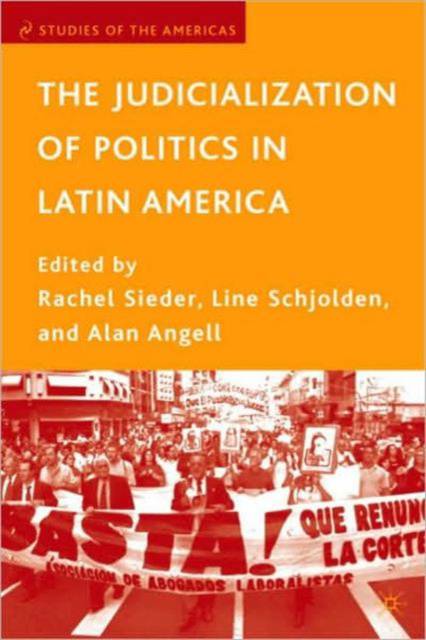
Je cadeautjes zeker op tijd in huis hebben voor de feestdagen? Kom langs in onze winkels en vind het perfecte geschenk!
- Afhalen na 1 uur in een winkel met voorraad
- Gratis thuislevering in België vanaf € 30
- Ruim aanbod met 7 miljoen producten
Je cadeautjes zeker op tijd in huis hebben voor de feestdagen? Kom langs in onze winkels en vind het perfecte geschenk!
- Afhalen na 1 uur in een winkel met voorraad
- Gratis thuislevering in België vanaf € 30
- Ruim aanbod met 7 miljoen producten
Zoeken
The Judicialization of Politics in Latin America
€ 76,45
+ 152 punten
Omschrijving
During the last two decades the judiciary has come to play an increasingly important political role in Latin America. Constitutional courts and supreme courts are more active in counterbalancing executive and legislative power than ever before. At the same time, the lack of effective citizenship rights has prompted ordinary people to press their claims and secure their rights through the courts. This collection of essays analyzes the diverse manifestations of the judicialization of politics in contemporary Latin America, assessing their positive and negative consequences for state-society relations, the rule of law, and democratic governance in the region. With individual chapters exploring Argentina, Brazil, Chile, Colombia, Costa Rica, Mexico, Peru and Venezuela, it advances a comparative framework for thinking about the nature of the judicialization of politics within contemporary Latin American democracies.
Specificaties
Betrokkenen
- Uitgeverij:
Inhoud
- Aantal bladzijden:
- 305
- Taal:
- Engels
- Reeks:
Eigenschappen
- Productcode (EAN):
- 9781403970862
- Verschijningsdatum:
- 12/12/2005
- Uitvoering:
- Hardcover
- Formaat:
- Genaaid
- Afmetingen:
- 146 mm x 218 mm
- Gewicht:
- 462 g

Alleen bij Standaard Boekhandel
+ 152 punten op je klantenkaart van Standaard Boekhandel
Beoordelingen
We publiceren alleen reviews die voldoen aan de voorwaarden voor reviews. Bekijk onze voorwaarden voor reviews.








